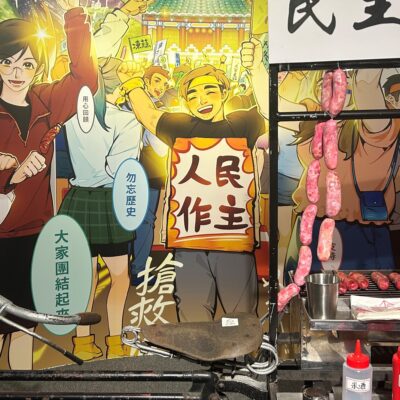This is an excerpt of a piece published with permission by Made in China.
It is 2013. For four full months, Liu Lipeng engages in dereliction of duty. Every hour the system sends him a huge volume of posts, but he hardly ever deletes a single word. After three or four thousand posts accumulate, he lightly clicks his mouse and the whole lot is released. In the jargon of censors, this is a ‘total pass in one click’ (一键全通), after which all the posts appear on Sina Weibo pages to be read by millions, then reposted and discussed.
He logs on to the Weibo management page where many words are flagged. Orange designates ordinary sensitive words that require careful examination—words like freedom and democracy, and the three characters that make up Xi Jinping’s name. While such words regularly appear in newspapers or on TV, that does not mean ordinary citizens can use them at will.
Three months earlier, some people took to the streets brandishing placards with slogans about democracy and freedom. In no time, the police arrested them. In China, no-one is surprised by something like that.
Red is for high-risk words that cannot be published and must be deleted: ‘Falungong’, the banned spiritual group; ‘64’, after June 4, the date of the 1989 Tiananmen massacre; the names of Liu Xiaobo and the Dalai Lama; ‘Jasmine’, because, after the Tunisian revolution two years earlier, several small-scale demonstrations that have come to be known as China’s ‘Jasmine revolution’ have made the Chinese Government so nervous about the name of a small white flower, the national flower of the Philippines, that the word jasmine is given a red flag.
After three years as a censor, Liu Lipeng detests his job. He detests the white office ceiling, the grey industrial carpet, and the office that feels more like a factory. He also detests his 200-odd colleagues sitting in their cubicles, each concentrating on their mouse and keyboard to delete or hide content. Occasionally, someone finds evidence of a crime.
One afternoon, the office boredom is disturbed when Chen Min* in the next cubicle suddenly jumps up, limbs flailing ecstatically. He has uncovered Wang Dan’s Weibo account. All the censors know that Wang Dan, the 1989 student leader, political criminal, and exile, is considered by the Chinese Government to be one of the most important enemies of the state. Finding him is a big deal, and the news is immediately reported to the Sina Weibo office in Beijing. It might even be reported to the Public Security Bureau.
The following month, a senior manager comes specially from Beijing to highly commend Chen Min for discovering intelligence about the ‘enemy’, praising his ‘acuity’ and ‘high level of awareness’, and bestows on him a 400-yuan bonus. All his colleagues applaud and shout in admiration. All except Liu Lipeng. He sits amid the crowd and glares at Chen Min’s face, flushed red with excitement, and asks himself: is this worth it?
Read the full piece here: Made in China.
Featured Image: It’s your cold day in the sun. Source: Juliana Pinto (CC), Flickr.com.




